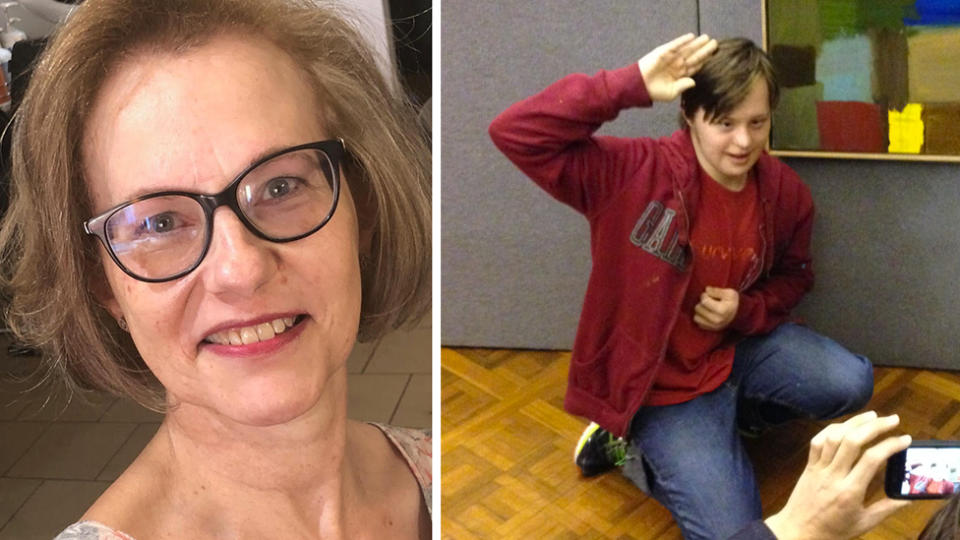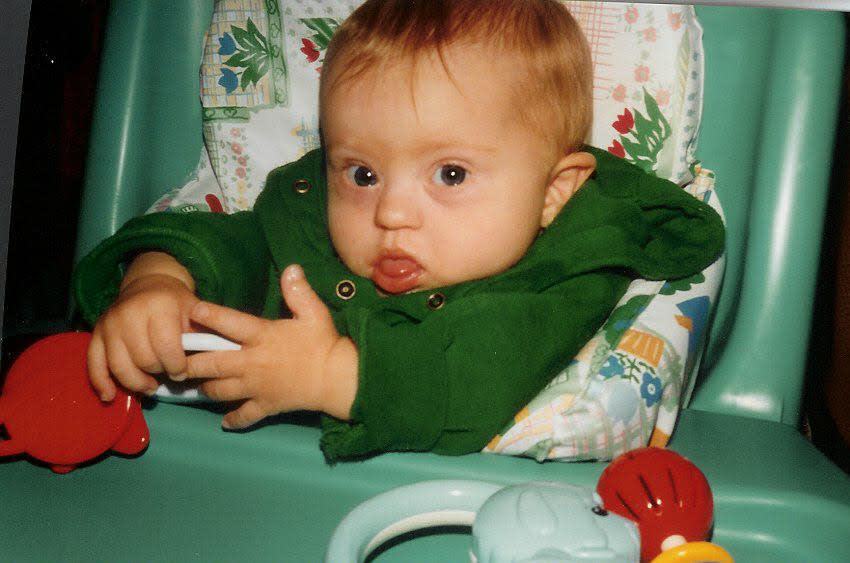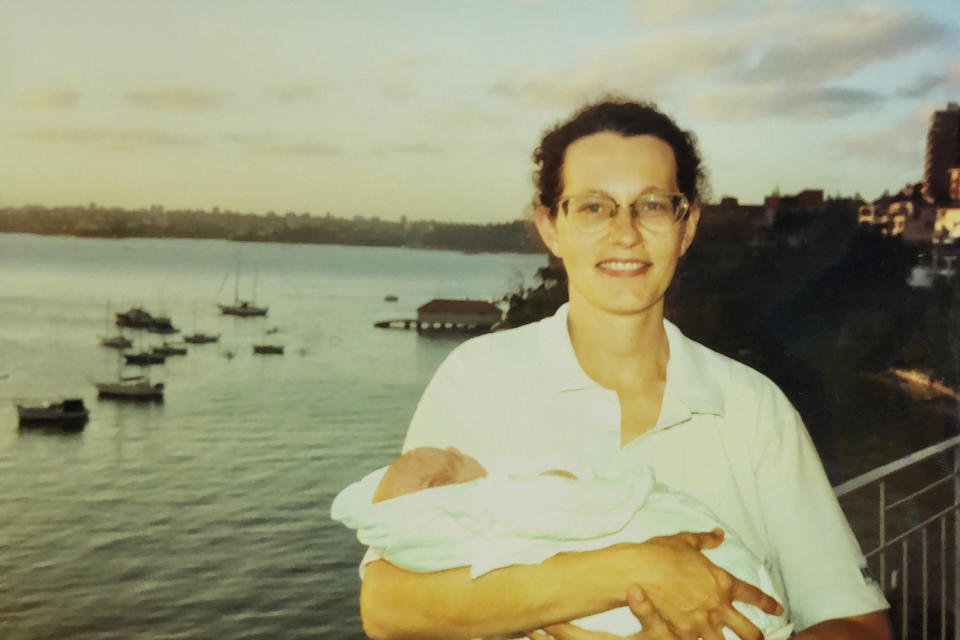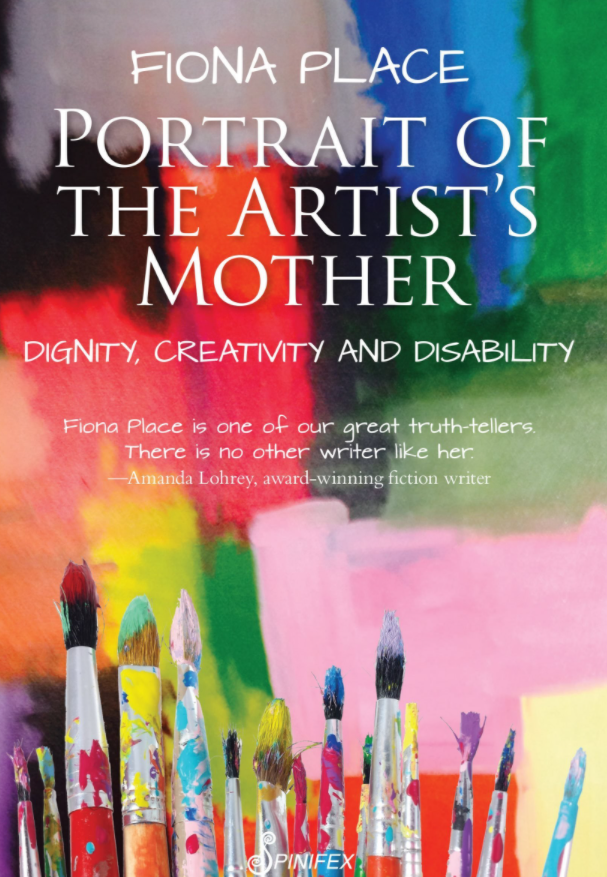'Uneasy silence': Truth behind mum's shocking birth experience
Fiona Place is the author of Portrait of the Artist’s Mother: Dignity, Creativity and Disability, a memoir and an examination of the politics of disability. She shares her experience, the silence of the birthing room, the horrified comments of other mothers, and the journey of motherhood of her Down syndrome son Fraser who has since become an award-winning artist. Here are some powerful extracts from her book.

“I am a writer and Fraser is an artist. I am his mother and he is my son. We are who we are. But it isn’t easy."
I was an ordinary woman, an ordinary woman on all fours giving birth. The next moment, a mother who had relinquished all duty of care.
On Saturday 17 February 1996, at 2.45 pm in a busy Sydney maternity hospital, I gave birth to a live, crying newborn. A newborn with almost perfect Apgar scores. But instead of elation and joy, instead of sparkling sentiments and congratulatory words spilling into every nook and cranny of the room, the delivery space collapsed into an uneasy silence, into whispers of palpable disquiet. A stillness no mother would find pleasing.
I watched from my bed as the paediatric registrar undertook his examination, each moment of his observing wounding my heart. There was something deeply dehumanising about his looking. Deeply unpleasant. Yet, if the truth be known, I too had looked, I too had noted the signs, the ‘stigma’.

I had been taught to ‘see’ as a paediatric student nurse. Taught to notice the signs of abnormality in the newborn especially the appearance of a simian crease on his or her palm. The crease — a single crease that extends across the palm of the hand, formed by the fusion of the two palmar creases — was unusual and resembled that found in higher primates, in non-human simians such as monkeys and apes.
He may have a small head and low-set ears, but he doesn’t have the telltale sign, the simian crease.
I wanted to shout out, to let loose with pride.
In other words, there was still plenty of room inside my head for doubt, for the possibility of good news, enough space for me to continue harbouring any number of reasons for his floppiness.
His difference.
I still remember the enormity, the loud female voice as it smashed through the silence. “Did you have an amniocentesis?”
The question hit.
Hit hard.
And at the same time didn’t hit at all. Still woozy from the effects of the nitrous oxide, still wanting to experience the elation of having given birth to a second son, I couldn’t take in the portent, the significance of the midwife’s request for information.
I simply said no, that I had chosen not to have the test. I also found it an odd question. Almost rude. I was, after all, still trying to comprehend why there were no smiles. No warm words of congratulations. No welcoming rush of wonder towards my newborn.
Towards the baby Anthony and I had made.
Wanted.
And instead of bathing in the precious awe of a new life, I found myself up against a considerable headwind. Without warning, ice-cold gusts were slapping at my cheeks, burning with a ferocity I had never imagined, never believed possible.
I was to be managed, processed and moved out of the delivery suite as quickly as possible. I wasn’t special. There was nothing to applaud.
“Do you have private insurance?” the midwife continued. “Yes,” I replied, wanting to be polite.
“Then we’ll put you in your own room.”
I knew being allocated my own room signalled bad news, but I still allowed myself to feel special, to feel encouraged by the idea of my own ensuite, my own space. I couldn’t, however, be that naïve. I did know the allocation had been decided upon because it was presumed I might be upset, might be depressed, might even be angry if I roomed in with mothers whose babies had been deemed ‘normal’.
I might need a space to cry.
It was also assumed Anthony too might need a space to express his anger.
We were deemed a risk — a possible volatile mix of outright disbelief and unimaginable grief.
We might need to rage furiously.
We didn’t.

Yes, there are days when having three children, one of whom has Down syndrome, means losing all hope of being an ordinary mother, a mother with run-of-the-mill concerns, and routines.
I’ve had such days.
Days when I wished I were a mother who could meet up with other mothers at a park, a mother who could entertain the possibility of returning to full time work, a mother who could take her children down to Bondi Beach on a hot, sweltering, Sydney afternoon.
Wished I were a mother who could manage all three. Manage safely.
Manage alone.
Days when the longing for a sense of ordinariness, the longing to be a mother who isn’t that much different to other mothers has threatened to extinguish any sense of usefulness, any sense of belonging to a community outside the family walls. Periods when being confined to the perimeters of the home while trying to be a good enough mother to three boys did seem unduly difficult and unduly friendless.
Fortunately, however, today such bleak times are few and far between, and most of the time I feel ordinary enough as a mother, connected enough as a mother despite my limitations. I would though be dishonest if I said I’d never felt so devoid of hope, so overwhelmed by the job of caring and so alone, that I hadn’t asked myself the hard question, the unpalatable question: Would I, had I known Fraser were to be born with the chromosomal abnormality known as Down syndrome, have terminated his pregnancy?
Or put it another way, should I have done what was expected of me?
Should I have had the amniocentesis? The answer I have always given is no. No, no.
And no.
Whatever happens, I know I made the right decision. The right decision for me.
I can still imagine myself refusing genetic testing if the only purpose is to terminate.
Perhaps one day Down syndrome will no longer be considered a condition that requires routine termination of a pregnancy.
Perhaps one day it will be a considered a condition with which you can bring new life into the world. And not an experience to avoid at all costs.

Portrait of the Artist’s Mother: Dignity, Creativity and Disability is a story of courage, love and commitment to the idea that all people, including those who are 'less than perfect', have a right to be welcomed into this increasingly imperfect world.
Never miss a thing. Sign up to Yahoo Lifestyle’s daily newsletter.
Or if you have a story idea, email us at lifestyle.tips@verizonmedia.com.

 Yahoo Lifestyle
Yahoo Lifestyle 




